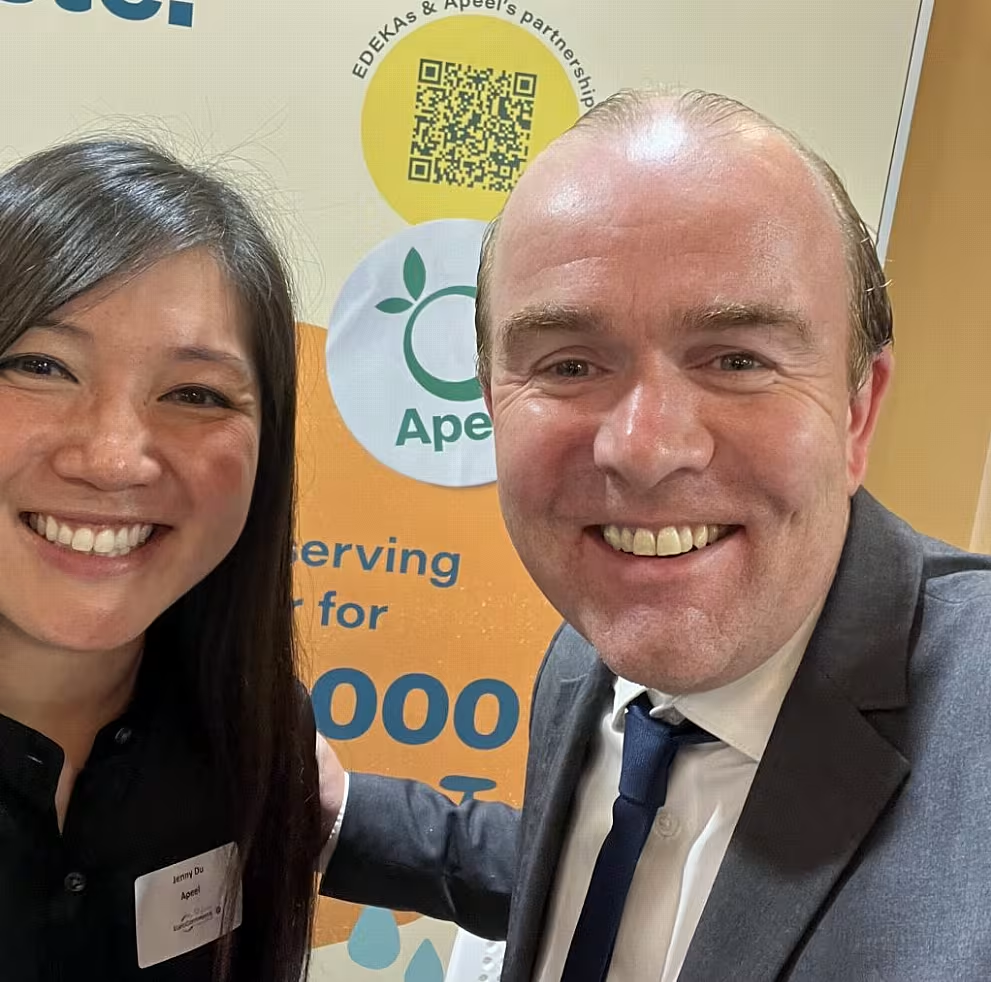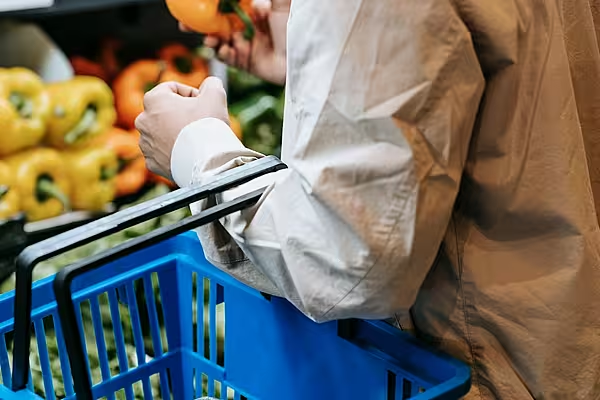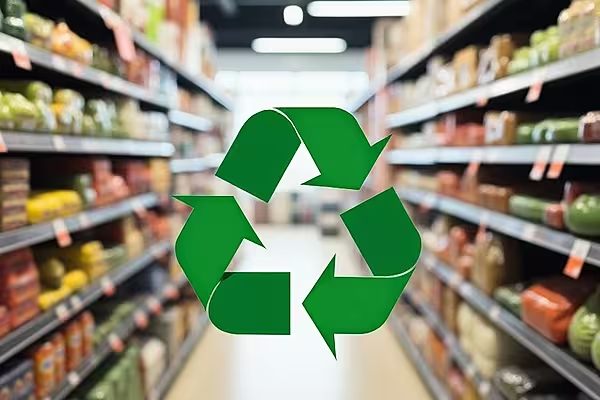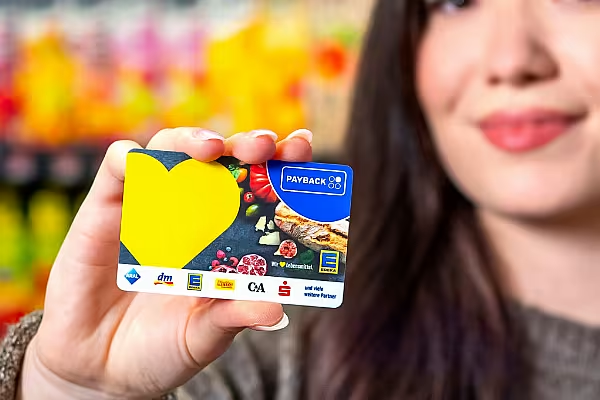Since its introduction to the market several years ago, much has been written about Apeel, an innovative natural coating for fruit and vegetables that can help keep products fresh for longer and reduce food waste.
Created by US-based Apeel Sciences and developed from lipids and glycerolipids found in the peel, seeds and pulp of agricultural by-products, Apeel is perhaps best known for its use in keeping avocados fresh. A project between Apeel and Edeka in 2021, of Apeel-treated avocados, saw a 50% reduction in product spoilage and a 20% increase in sales. Other applications include cucumbers and citrus-based fruits.
Edeka Campaign
Last month, Apeel teamed up again with the German retailer to unveil an amusing online campaign (watch it here: youtu.be/m_nyW5pwYz4), featuring an individual using a myriad of absurd practices – including placing oranges in the bathtub – to keep his fruit and vegetables fresh, with the message that Apeel is a simpler solution.
At the recent EuroCommerce 30th-anniversary event in Brussels, ESM caught up with Jenny Du, senior vice-president and co-founder of Apeel Sciences, to learn more.
ESM Meets Jenny Du, Apeel Sciences
ESM: How long has Apeel been available on the market?
Jenny Du: The company, Apeel Sciences, was founded in 2012, however, at that time, our founding team was still in the university system. Our first commercial product became available in the US market in 2018 and later expanded to Europe in 2019.
The topic of reducing food waste has been around for a long time, so the thinking behind Apeel – reducing waste while not having to rely on plastic or other materials – must resonate strongly with retailers.
Yes, it does, however, not all retailers necessarily believe they have a food waste problem or consider it significant enough. What we have realised, particularly through our collaboration with retailers, is that waste reduction not only brings benefits, but also has the potential to increase sales.
Let’s use avocados as an example. From a consumer experience perspective, when you go to the store looking for an avocado, it’s typically for immediate use. However, what usually happens is that you either find under-ripe avocados or none at all, and if you do find any, they are often too far gone. It becomes difficult to trust that the avocado will be good by the time you bring it home.
Using Apeel gives avocados more time. They can remain perfectly ripe for a longer period, by as much as four days – this has been verified by the Fraunhofer Institute. As a result, retailers can have greater confidence in showcasing more avocados, ensuring they are more likely to be ready to eat – a more reliable avocado, if you will.
That’s an important position to take, I think – that this can be good for business. Many companies aspire to be more sustainable, but they worry that it will be cost intensive, rather than improving profitability.
Yes, and this is where we see the opportunity to not only drive sales, but also convey a unique product offering to consumers. You have the chance to ‘do well by doing good’, making a choice that benefits both you, personally, and the planet. Also, you can enjoy a higher-quality taste experience while also preventing a significant amount of food waste.
The best part is that, for consumers, it doesn’t have to be overly difficult to make this change. You don’t have to go to such great lengths – the solutions are readily available in your local supermarket.
Aside from avocados, what other applications does Apeel have? As you are using all-natural coatings, we presume this could roll out into other categories.
From an ingredients perspective, these are plant oils found in the products that we already eat and are actually already present in a variety of different food categories, like pasta, infant formula, and ice creams, so it’s not a novel ingredient – it’s something we’re eating every day.
Uniquely, in the European Union, we are restricted to using it only on tropical fruits with non-edible parts, but everywhere else in the world, we’re allowed to use it on all sorts of vegetables.
We’ve been able to demonstrate its effectiveness in a number of other produce categories, such as cucumbers. Typically, they are shrink-wrapped in plastic, and there’s a school of thought that if you remove the shrink wrap, the effect is more damaging on the environment, as there’s more food waste.
With Apeel, you can resolve the tension and the contradictory aspect of needing plastic packaging to maintain shelf life and still retain the quality. This is something we’ve demonstrated in other markets and would like a chance to bring to the European Union as well.
What is preventing you from introducing this into the European Union?
Currently, from a food safety perspective, there is no safety issue, as decided by EFSA [European Food Safety Authority] – the ingredients are allowed with no limit on their allowable daily intake.
It’s more of a cultural consideration on the European Commission’s side, raising questions about how consumers would feel about the use of these products on fresh fruits and vegetables.
We undertook some research – we wanted to discover what consumers know and expect from the labelling of post-harvest treatments on fresh products. What we found out is that it’s currently very unclear, and consumers are often confused. However, once you explain to them the purpose of an ingredient and how it is beneficial for them and the environment, they are very accepting.
There’s an information gap that we are actively trying to bridge in our discussions with the European Commission. By clearly communicating the purpose and benefits of such products, we hope to address any concerns or uncertainties that consumers may have.
What’s next on the agenda for Apeel?
To date, it has been exciting to work with both the supplier side and the retailer, to guide them in offering plant-based protection-type products. During this time, we have also been collecting a lot of information.
So, the next frontier for us is the digitisation of that information, so we can help suppliers and retailers make smarter supply chain decisions that can have a direct impact on product quality. Our goal is to ensure that as much produce as possible makes its way to the end consumer in the best condition.

Jenny Du, senior vice-president and co-founder of Apeel Sciences, with
ESM editor Stephen Wynne-Jones© 2023 European Supermarket Magazine – your source for the latest fresh-produce news. Article by Stephen Wynne-Jones. Click subscribe to sign up to ESM: European Supermarket Magazine.














